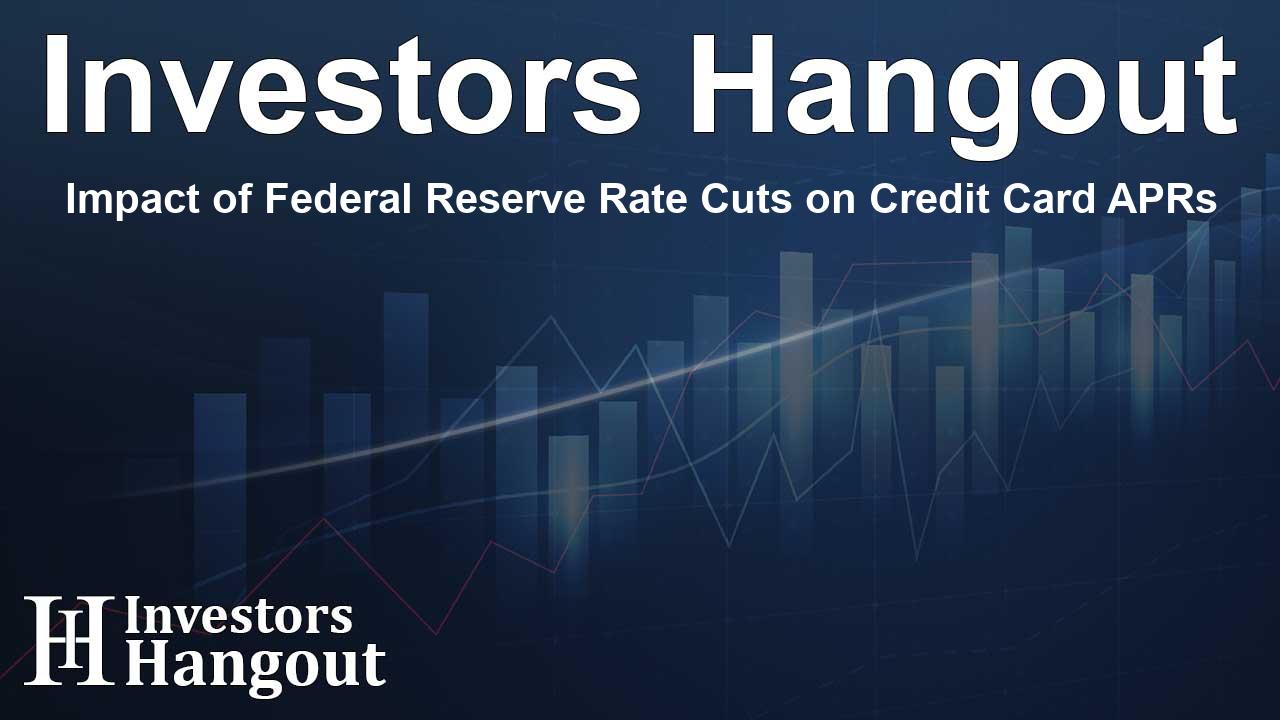Impact of Federal Reserve Rate Cuts on Credit Card APRs

Understanding the Implications of Fed Rate Cuts on Interest Rates
If the Federal Reserve opts to lower interest rates, many consumers are left wondering how this will impact their wallets. Benjamin Ayers, a senior economist at Nationwide Insurance, explains that while a rate cut could bring some relief, the immediate benefits may not be felt significantly in everyday financial obligations.
The Short-Term Effects of Rate Cuts
Ayers notes that a reduction of 25 or 50 basis points may lessen the pressure on certain loan rates like auto loans and mortgages, but the effect will be modest. Rates on savings accounts and CDs might increase concurrently, which could offset some benefits. According to him, the more substantial effects of any cuts will unfold in the coming months rather than instantly.
Consumer Perspectives on Credit Card APRs
Matt Schulz, LendingTree's chief credit analyst, echoes these sentiments, stating that the anticipated drop in rates is unlikely to translate to immediate savings for individuals holding credit card debt. Currently, the average APR for new credit cards stands at an alarming 24.92%, a record high that could linger even after the Federal Reserve's actions.
Calculating Potential Savings from Rate Cuts
To illustrate the minimal impact, Schulz shared a scenario: a consumer with a $5,000 balance at the current rate would incur significant interest costs. If the Fed cuts rates modestly, the resulting savings would be a mere fraction, dropping monthly costs by less than a dollar. This underlines the reality that rate cuts, while beneficial over time, may not deliver immediate relief for existing debt burdens.
Long-Term Outlook for Consumer Financing
Looking beyond the immediate effects, auto loan rates are predicted to decline if the Federal Reserve makes cuts. Schulz advises consumers to be prudent in their financing decisions and to shop around instead of only relying on dealership offers, which often come with higher rates. Additionally, while savings account yields have started to decline, there’s no need for alarm; such changes won’t happen drastically or all at once.
Market Reactions to Potential Rate Changes
The financial market is paying close attention to these developments. Following speculation of rate cuts, several financial institutions saw their stocks rise. Notable examples include Bank of America Corporation (NYSE: BAC), which experienced a 1.31% increase, and Discover Financial Services (NYSE: DFS), rising by 1.98%. These shifts indicate market optimism regarding potential Federal Reserve actions.
Trends Among Major Financial Institutions
Other prominent companies also tracked upward, such as Rocket Companies, Inc. (NYSE: RKT), seeing a 3.87% gain, and Capital One Financial Corporation (NYSE: COF), with a hike of 1.82%. Such movements in stock prices reflect broader expectations of the Fed's monetary policy direction and its potential impact on consumer finance.
Frequently Asked Questions
What will happen to credit card APRs if the Fed cuts rates?
Experts suggest that while credit card APRs may fall from their current highs, significant relief might not be seen immediately following a Fed rate cut.
How does a 25 basis point cut translate to savings?
A reduction of 25 basis points will offer minimal savings; for example, a $5,000 balance could save less than a dollar monthly in interest payments.
Should consumers rely solely on car dealership financing?
No, consumers are encouraged to explore financing options beyond dealerships, as they typically offer higher rates than other lenders.
What impact will rate cuts have on consumers' saving accounts?
While savings rates may begin to fall, the changes are unlikely to happen abruptly, and consumers shouldn't panic.
Will we see immediate changes in loan rates after a Fed cut?
Immediate changes are unlikely; significant impacts will be seen over the following months as the market adjusts.
About Investors Hangout
Investors Hangout is a leading online stock forum for financial discussion and learning, offering a wide range of free tools and resources. It draws in traders of all levels, who exchange market knowledge, investigate trading tactics, and keep an eye on industry developments in real time. Featuring financial articles, stock message boards, quotes, charts, company profiles, and live news updates. Through cooperative learning and a wealth of informational resources, it helps users from novices creating their first portfolios to experts honing their techniques. Join Investors Hangout today: https://investorshangout.com/
Disclaimer: The content of this article is solely for general informational purposes only; it does not represent legal, financial, or investment advice. Investors Hangout does not offer financial advice; the author is not a licensed financial advisor. Consult a qualified advisor before making any financial or investment decisions based on this article. The author's interpretation of publicly available data shapes the opinions presented here; as a result, they should not be taken as advice to purchase, sell, or hold any securities mentioned or any other investments. The author does not guarantee the accuracy, completeness, or timeliness of any material, providing it "as is." Information and market conditions may change; past performance is not indicative of future outcomes. If any of the material offered here is inaccurate, please contact us for corrections.